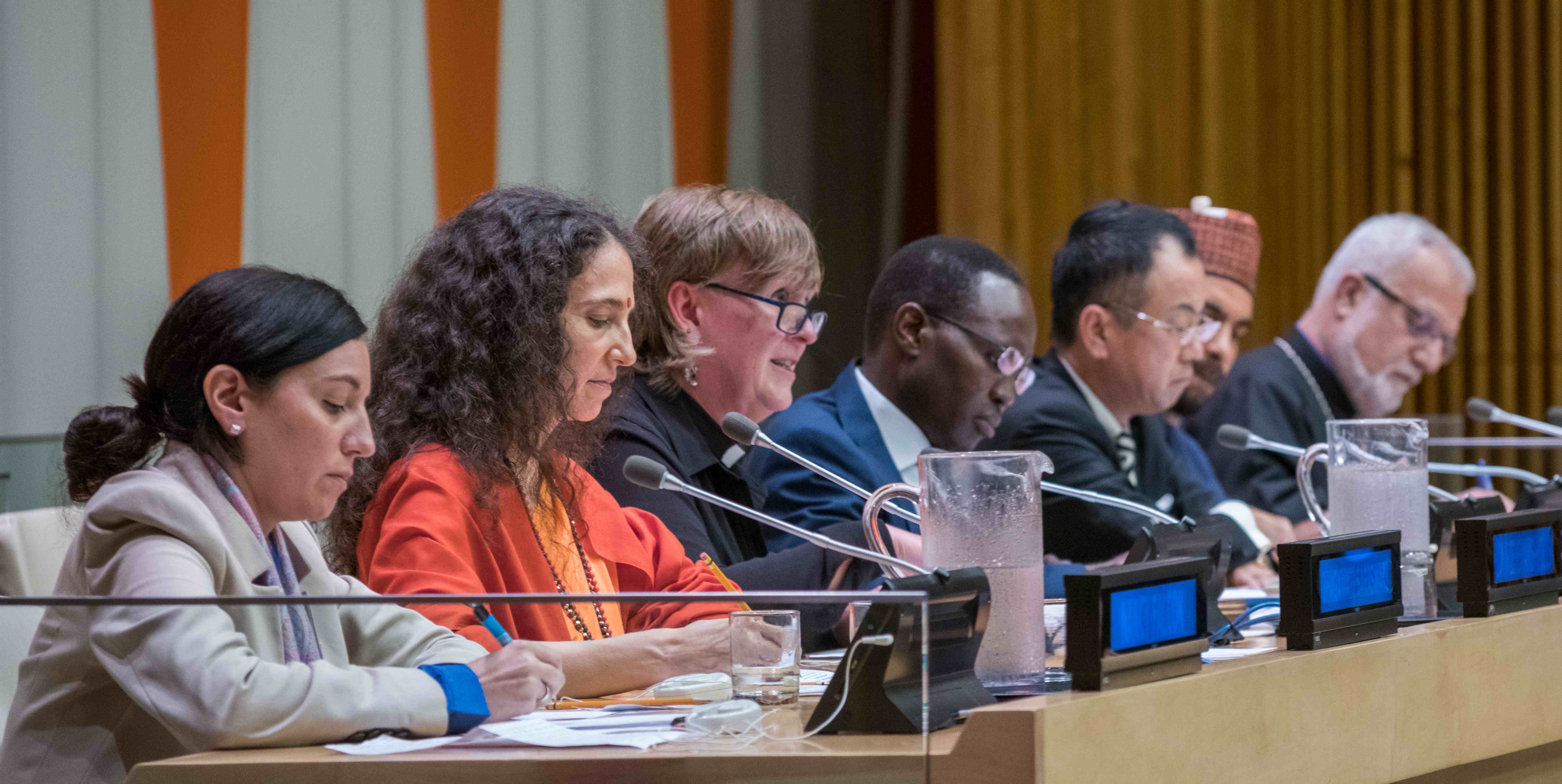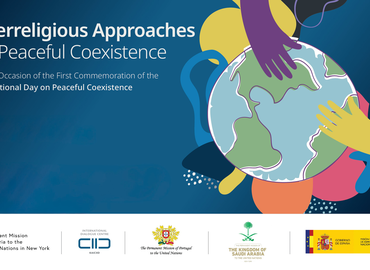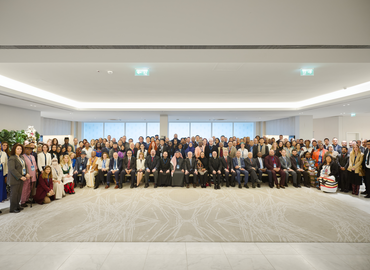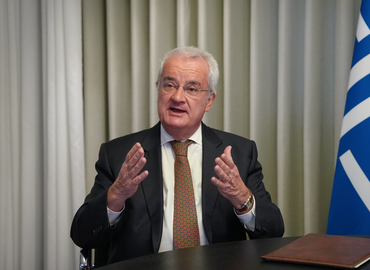Religion at the UN: from Gender Justice to Protecting the Environment, How Faith Communities Are Creating Sustainable Change

In honor of the 75th anniversary of the United Nations (UN), members of the Multi-faith Advisory Council (MFAC) analyse the role of religion and faith-based work in furthering global development goals and international peace and security. The MFAC will also hold an online conference titled “Faith in the UN: Commemorating the 75th Anniversary of the United Nations and Looking to the Future” on 8 September at 8:00 am (EST), which will be open to the public.
When Prof. Azza Karam was trying to create the Interagency Task Force on Religion and Sustainable Development (IATF) during her time at the UN, she often ran into a challenge that seemed embedded in the organization’s DNA.
“The UN is supposed to be the quintessential universal culture, you’re supposed to step through the doors and have no country, no religion, and serve all,” she said.
Respecting this altruism and admiring the broad human rights principles that make the UN what it is, Karam still felt something was missing — the heart. She wondered, “how can you serve all if you don’t understand what touches people’s hearts, their faith?”
Driven by a desire to see faith-based actors more involved with the UN, she worked with like-minded individuals to create the UN IATF in 2010. Today, it includes more than 20 UN agencies and works toward shared objectives with key partners in the faith-based world.
In 2018, the UN IATF established the MFAC to advise on key areas of the UN’s mandate, such as gender justice, environmental protection, and peacebuilding. KAICIID serves as the only intergovernmental organization that holds membership in the MFAC and co-chaired the council from 2018-2019.
Rabbi Burton Visotzky, Appleman Professor of Midrash and Interreligious Studies at Jewish Theological Seminary in New York City, was already involved with the UN Under-Secretary General for Genocide Prevention and was often consulted along with other faith leaders by the IATF, so much so that he thought of himself as “the UN’s ‘go-to Jew.’”
Along with other “religious friends of the UN” he came to serve on the MFAC when it was founded.
Although still in its infancy, Visotzky said the MFAC has already made an impact around the UN. “Having discovered religion, the UN has acted on that knowledge and is keen to partner with us in a variety of ways.”

Visotzky said that desire comes from practical experience among UN staff, “anytime UN agencies would go to a hotspot or where there is enormous poverty, who would they find already at work there? Religious actors. They were the ones working with development organizations to lift people out of poverty and build peace,” he said.
Today, organizations such as the Tzu Chi Buddhist Foundation or Bhumi Project at the Oxford Center for Hindu Studies consult with the UN to see how religious communities can do their work more effectively and how the UN can work better with religious communities to achieve the Sustainable Development Goals (SDGs).
Karam, now Secretary General of Religions for Peace (RfP), sees faith-based actors as a central part of achieving sustainable development and addressing humanitarian issues. “Religion matters in the work the UN does, it is the heartbeat of anything that we think we can do to heal the world’s peoples,” she said.
While “faith at the UN” might seem a strange pairing to some, Bani Dugal, the Principal Representative of the Baha’i International Community to the UN and co-chair of the MFAC, sees it as an ideal relationship. After all, she said, with 84% of the global population identifying with a religious group, “it’s just a natural thing to be doing.”
Dugal knows the UN well, having served as part of the community of international non-governmental organizations (NGOs) at the UN since 1994. She said that while the UN has its struggles, “it is the place where the governments of the world come to consult and now, where the diversity of the world’s religions come together as well.”
Far from being a hindrance, Dugal said the diverse faith groups involved with the MFAC, “inspire people at all levels to rise to their better selves and do what is best for humankind.”
Jack Palmer-White, the Anglican Communion’s Permanent Representative to the UN, called this the MFAC’s “prophetic leadership.”
“We are able to motivate people at the grassroots to get involved in realizing the SDGs,” he said, “and that is what makes the MFAC most effective — being able to accelerate the changes we want to see in the world.”
In concrete terms, Dugal shared how the MFAC was able to help the UN implement immunization campaigns (SDG#3, “Good Health and Well-being”) in places like India, where faith communities were sometimes skeptical.

Palmer-White mentioned how one of the MFAC’s Kofi Annan Faith Briefings — a conference jointly organized by the MFAC — introduced Most Rev. Julio Murray, Archbishop of the Anglican Church of Central America, to a range of religious partners that still shape his work on youth rights (SDG#4, “Quality Education”).
“While these kinds of coalitions can happen ad hoc, they happen much more readily under the aegis of the MFAC,” said Palmer-White.
Regarding SDG#16 (“Peace, Justice and Strong Institutions”), Dugal said, “The UN understands that we are the ones that can reach hearts and reach deep into the communities to bring about the change that is required to achieve such peace.”
“[It] has relied more-and-more on the MFAC to bring multiple voices together on these issues and extend its reach,” she continued. Even so, the MFAC faces challenges. The greatest of these are suspicions about whether faith-based and faith-inspired groups should be consulted when they are so often the cause of division and discord.
Because of this Visotzky said, “the UN kept religion at arm’s length.” Corollary religious organizations did the same with the UN.
That’s why Palmer-White emphasised how building trust is one of the MFAC’s primary tasks. “Change isn't just a sudden shift in policy, it’s building relationships, building trust,” he said.
Since the MFAC was founded, Palmer-White said there has been a steep change in terms of religious literacy at the UN. More-and-more, UN agencies and staff are learning that religious actors can provide intimate insight into frontline issues and often have access to places the UN struggles to reach.
This also requires translating the work of the UN back into religious communities. “It’s a two-way street,” Palmer-White said, “where the UN builds better relationships with religious communities and religious communities develop a better relationship with the UN.”
This, in turn, creates opportunity for more voices to be heard, more coalitions to be formed, and better, more sustainable, work to be done, he said.
Looking to the work of the UN IATF and the MFAC in the future, Visotzky said, “there will always be religious entities that don't want to play well with others, but we all share an enormous range of values of how to better the world and how to unite the world,” he said.
“The extent to which we can work towards achieving those common goods,” said Visotzky, “the better off all of us will be.”

As discrimination, hate speech and identity-based violence…

- KAICIID marks 10 years of global peacebuilding, uniting over 130 leaders in…

